- Home
- Tamara Leigh
LADY UNDAUNTED: A Medieval Romance Page 2
LADY UNDAUNTED: A Medieval Romance Read online
Page 2
Liam stepped into the corridor.
“Do you not wish to watch me die?” his brother called.
“Already you are dead to me,” Liam cast over his shoulder and continued toward the stairs.
“Filthy, misbegotten Irish—” A groan stole Maynard’s words and became a high-pitched wail.
Liam tried not to care that his brother was in the throes of death, but he faltered.
Standing before the stairs, he bowed his head. He would not think on the one for whom he had once felt great affection. He would not dwell on the boy who had revered him. Only the Maynard of this day would he remember—Maynard the deceiver.
With the sound of that one’s whimpers and cries resounding off the stone walls, Liam descended the steps to the great hall. Upon reaching the doors to the inner bailey, he felt a silent beckoning and halted, breathed deep, and looked to the elaborately carved high seat reserved for the lord of Ashlingford. Long it had awaited him. And longer it must wait.
Betrayed and betrayed again, he strode out of the keep into a sunless spring afternoon whose chill wind bit. As he gazed beyond the castle walls to land that should be his, he became aware of the gathering at the base of the steps.
“The baron is dead,” he said, certain that if Maynard’s life was not yet severed, it would be momentarily.
The voices rose to a din, but not because the castle folk suffered great loss over the death of their lord. They were surprised. From an early age, Liam had often had to prove himself to his father’s people because of his Irish blood, but it was to him they had grown loyal, him they regarded as their lord, not the philandering Baron of Ashlingford.
Assuring himself his bid for the barony was not done, determined he would not easily hand it over to the child Maynard had made to steal it from him, he called for his men and descended the steps. As he strode the path that opened before him, he was besieged by questioning eyes, but he ignored them. Soon enough they would learn of Maynard’s deathbed disclosure.
In the outer bailey, a half dozen men on his heels, Liam shouted for horses and provisions and headed for the smithy.
“Sir Liam! What commotion is this?”
He turned to the knight who guided his destrier into the bailey.
Sir John grinned, swung out of the saddle with the lightness of one who carried less weight on his bones than many a warrior, and tossed the reins to his squire.
Liam had forgotten that the vassal and keeper of the lesser castle of Duns was expected this day to discuss his accounts. Accounts that no longer mattered.
Liam sent his men to the smithy with orders to sharpen their weapons, then strode to where John picked off his gloves.
“Surely you are not leaving, Sir Liam. We have business to discuss and—” A frown grooved the face he turned up to Liam. “Something is amiss?”
“Maynard is dead.”
He jerked back. “God’s eyes, Liam! How?”
“He rode his horse into a ravine last eve.”
“But he was a capable rider.”
Liam raised an eyebrow.
“Drunk again.” The knight snorted and shook his head, as disgusted with the Baron of Ashlingford in death as he had been with him in life. “’Twas you who found him in the ravine?”
“Nay, he climbed out and walked the distance himself.”
“Did he linger long?”
Liam turned aside the memory of his brother broken on his bed. “Long enough.”
John drew a breath that raised broadly muscled shoulders one would not expect on a man so short and narrow of hip. “Ah, he gave you a time of it.” He returned his attention to the removal of his gloves. “But ’tis done with. Thus, henceforth I must needs address you as my lord.”
There was only one whom Liam trusted as much as this knight—his steward, Sir Hugh—but he once more refused himself the expression of his anger. “Ashlingford is not mine. Not yet.”
The knight stilled. “How can that be?”
“Maynard has left behind a legitimate son.”
“Impossible. He cannot have wed without your knowledge. The banns—”
“May have been read at Rosemoor, where he wed, or not at all.”
John cursed beneath his breath. “A special license, then. Even so, we all know of his arrangement with you. He—”
“I ride south within the hour. Do you ride with me?”
“Of course, but what do you intend?”
“To take back what is mine.”
“William!”
Liam dragged on the reins, and the dozen men chosen to accompany him turned with him to face the interloper.
Just as the horse Ivo rode was too fine for a priest, the sword at his hip was misplaced. But it was all that Ivo was. Aged forty and nine, the once-handsome man lived life with God on his lips, warring on his mind, and greed in his heart—of the Church in name only.
“Have you not someone to bury?” Liam asked.
Ivo guided his destrier to the end of the drawbridge. The whites of his eyes and tip of his nose red with weeping, he said, “I do, but as your journey will not wait, neither will mine.”
“Go, then.”
Ivo’s smile was a twisted thing. “Ah, but I go with you.”
Then he would not first seek the coins Maynard had hidden? Since it was a considerable sum, it could only mean it was hidden well enough it could wait. “I do not require your priest’s services.”
The jewels of his crucifix catching light, Ivo said, “I do not offer them.”
Almighty, Liam silently beseeched, I am near to letting flood all I hold inside. Pray, calm this storm.
However, it was as much the unease of his men, who feared the letting of holy blood, that pulled him back. Reminding himself he was still lord to these men, even if only because of their loyalty to him, Liam said, “You are not needed.”
“’Tis to Rosemoor you go?”
“It is.”
“Then I shall ensure Maynard’s heir reaches Ashlingford alive.”
As if Liam would resort to murder! “You think he will not?” he growled.
“Many are the unfortunate accidents that befall children during travel.” Ivo lifted his palms heavenward. “I would but ensure none befall Oliver.”
“As I will not be traveling with him, your worries are unfounded. I go to Rosemoor to verify the child’s existence and the validity of Maynard’s marriage.”
“And then?”
“You are too learned to ask such a question, Uncle.”
“You will go to London to petition the king for the barony?”
Leaving Ivo’s question unanswered, Liam said, “Stay and bury your beloved nephew. No harm will come to the child.”
“Let us be certain, hmm?” Ivo urged his horse off the drawbridge.
Though tempted to overpower him and lock him in one of the gatehouse cells, Liam knew he would have to answer to the Church. Thus, the devil would join them.
“We ride!” Liam shouted and spurred his destrier ahead of the others.
CHAPTER TWO
“Do not touch.”
“Why?”
“It has thorns.” She fingered the base of the spine. “See?”
“Uh-huh.”
“If you catch your finger on it, ’twill hurt.”
“Why?”
“Because…” Joslyn sighed. “Ah, Oliver, I have told you before.”
“Tell me ’gain.”
She tapped his dirt-smudged nose with a gloved finger. “I will not, little man. Now along with you.”
He groaned and headed back across the garden.
“Take your bucket!”
He scooped it up and toted it back to the corner of the walled garden he had earlier abandoned, a patch of earth ravaged by numerous holes and heaps of dirt. Heaving a sigh clearly intended for his mother’s ears, he plopped down and set about dirtying those rare, clean inches of himself.
Joslyn smiled. From the top of his golden head to the small toes he curled
into the soil, he was hers, every dear and dirty bit of him.
She turned back to the rosebush she had been transplanting when he had come to her with his endless questions. As she began to pack the roots, she became aware of something whose sound not only traveled on the air but was felt through the earth beneath her knees.
Horses. But why at such speed when it was not permitted within the village walls? Though none would speak against their lord making such a ride, never had her father done so—even when he was full up in his cups. Had something happened to warrant the urgency, something that returned him from London though he was not expected home until the morrow?
Joslyn pushed to her feet.
“Mama?” Oliver had also risen.
“’Tis naught. Remain here.”
“I come, too.”
“Nay, I will return in a moment.”
“But I want—”
“Stay, Oliver.”
His lower lip jutted, but he remained alongside his bucket.
Hoping he would not disobey, which he did fairly often since he had turned two years of age, Joslyn passed through the gate and walked to the front of the manor house.
Shading her eyes, she scanned the village, but all she saw were her neighbors leaving their homes to witness the cause of the din—as did the manor servants coming behind Joslyn.
Concluding the riders must be her father and his men bearing bad tidings, since others of such great number would have been turned away at the village gates, Joslyn lifted her skirts and stepped onto the green that well evidenced yesterday’s rainfall. She was a quarter of the way across when the riders appeared. Out of the village they came, turning onto the road leading to the manor.
She faltered. They were distant, but she could see it was not her father at the fore. Instead, the sun shone on one who sat taller in the saddle than was possible for Humphrey Reynard, one whose head was crowned with hair of red.
“Dear Lord, he has come!” She ran, desperate to reach Oliver and get him inside and the door bolted.
How I wish this once he had disobeyed me and followed! she silently cried. There being no entrance into the manor from the garden, she would have to retrieve her son and retrace her steps.
As she neared the great house, the servants called to her, but there was no time to attend to them.
She lunged past the gate. “Oliver!”
He was where she had left him, eyes wide. “Mama?”
She gathered him up and hastened back to the gate. But when she stepped from the garden, she saw the red-headed rider had broken from the others and was headed across the green toward her. He had seen her, surely guessed who fled him.
Joslyn measured the distance from the manor door to the one whose hair proclaimed he was Liam Fawke. She could not make it. What, then? She would not simply stand here and allow this man to do what he intended, but neither could she scale the high back wall.
“Who’s that?” Oliver asked of the one thundering toward them.
She pivoted back into the garden and ran to a portion of the wall in need of repair. If she and Oliver could squeeze through the hole, the wood beyond the village wall would provide refuge.
She set her son on his feet, dropped to all fours, and shoved aside the fallen stones. But there was only time to clear enough to allow the little boy to pass through.
“Listen to me, Oliver. There is a bad man coming. You must hide.”
“Bad man?”
“Do you remember—”
“The red knight?”
She pulled him near and lifted his chin. “Aye, the red knight. Do you remember the old oak by the stream, the one with the large hollow in its trunk?”
“Uh-huh.”
“I want you to crawl through here”—she nodded at the breach in the wall—“and run as fast as you can to the postern gate.” Unless someone had closed it this past hour, it would be open. “Go into the wood and hide in the oak.”
“But there is bugs in it. You said I could not—”
“This is different. You must hide there so the bad man cannot find you. Do you understand?”
At his nod, she kissed his brow. “I will come for you shortly.” She pushed him toward the hole.
Oliver dropped to his knees. “Will he hurt you, Mama?”
She forced a smile. “He will not. Now make haste.”
Once his bottom disappeared and she heard the beat of his feet over the ground, she straightened, retrieved the rake she had earlier discarded, and hurried back across the garden. Pressing herself against the wall alongside the gate, she raised her weapon.
She expected Liam Fawke to propel his mount into the garden as recklessly as he had over the green, but he reined in before the open gate, his destrier’s heavy breathing and the shadow the animal and its rider threw the only proof of their presence.
Here was no unseasoned knight. Certes, he suspected what he could not see. And that was good, for the longer he stayed without, the more time Oliver had to reach the wood.
The horse bolted into the garden.
Joslyn swung at the man’s back and landed a blow to the air that nearly spun the rake out of her hands. Fingers splintered by the wooden handle, she raised her crude weapon again as the knight wheeled his horse around.
What a sight! She had known him only by the hair of which Maynard had spoken—the Irish of him. From that, and her husband’s tales of this cruel, treacherous man, she had envisioned a far different person.
The misbegotten brother Maynard had described had been neither so tall nor broad-shouldered. He had been older and had not possessed a handsome face beneath hair she had imagined long and unkempt, rather than groomed—cut short above the ears but longer in back where it curled over his collar. He looked more the nobleman than the knave of Maynard’s tales. Still, he was dangerous.
Liam stared at the woman. From her flight across the manor green, he had guessed she was Lady Joslyn and that she ran to hide her son. But this could not be the woman whom Maynard had wed and made a child upon. The creature wielding a rake would have held little appeal for his brother.
From the crooked veil atop her head that revealed strands of blackest hair, to the hem of her drab skirts, she was streaked with dirt. If she was of the manor, it was in the capacity of a servant, and she had run out of fear.
“He is dead,” she said.
Frowning, he searched her amber eyes.
She tilted her smudged chin higher and, in a voice at odds with her appearance, said, “He told me you would come. That you would try to murder my child and me. Is that what you intend, Liam Fawke?”
It was Lady Joslyn. Perhaps cleaned up, Maynard’s wife would be presentable, but there seemed little about her to attract a man. Who even knew what figure she possessed beneath those soiled, ungirded garments?
“Is it?” she pressed.
Ignoring the question reaped from Maynard’s warning that if Liam came he would be the bearer of death, he asked, “Where is the boy?”
“What are your intentions?”
She stalled. Allowing her time he could afford, he said, “To claim what is mine.”
“Ashlingford.”
He inclined his head.
“Then I am correct in believing Maynard is dead?”
“You are.”
She lowered her lids, but when she lifted them, he glimpsed no grieving in her eyes.
Unfeeling, then. The same as Maynard. “You do not seem saddened, my lady.” He nearly laughed at bestowing the title on one who could not look less the noblewoman. “But then, when one weds but for gain, ’tis to be expected.”
Her eyes flashed. “As you do not know me, your attempt to gauge my character offends.”
He did know her, for what more needed to be told of the lady than that she had wed Maynard? Of course, she may have had little choice. Though women could not be made to wed against their will, there were ways to convince them.
“I ask again, what are your intentions toward my son?
”
Liam prodded his destrier forward.
She raised the rake higher. “Come no closer!”
He turned his mount sideways and moved his gaze down her weapon. As a mother protecting her babe, she would use it—albeit in vain. “I ride to London on the morrow to put my claim before the king. Oliver shall accompany me.”
“Why?”
He had not planned such when Ivo had questioned him, but the more he had thought on it, the more it appealed. Let the king see the heir Maynard had named. Let him decide if a barony of the magnitude and importance of Ashlingford belonged in the hands of a child—rather, those who would make a puppet of him. “Where is the boy?”
“Where you cannot touch him.”
“I vow no harm will befall him.” He gestured to the rake. “Do you plan to use that?”
“If I must.”
Liam pondered what his father would have said of an armed and mounted knight facing off a bedraggled waif whose only defense was a rake. And nearly smiled. “Put it down, Lady Joslyn. You need not fear me.”
“You are no stranger to me, Liam Fawke. I know the man you are.”
Maynard had made certain of that. “Then what makes you think a rake will prevent me from taking what I want?”
Her gaze moved to the thrusting sword hanging on the front of his saddle, then the long sword suspended from his hip belt, lastly the dagger.
“Were I the murderer Maynard led you to believe, you would not be standing.”
“I will not allow you to take my son.”
Liam was about to assure her again of the boy’s safety when he heard a child’s voice raised in protest. “But I have him already, my lady.”
Fear widening her eyes, she dropped the rake and ran from the garden.
Liam prodded his destrier forward and followed her to the rear of the manor, where John and three other knights rode toward them.
“Nay!” The lady lunged for the squirming, screeching child beneath John’s arm.
Liam rode past her and turned his destrier into her path. “You will be trampled!”
She stumbled to a halt, splayed her hands at her sides, snapped them into fists. “That would fit your plan well.”
Knowing she would believe Maynard’s lies before she would give weight to the words of a stranger, and having no occasion to prove his brother false, he shifted his regard to John. And had his first look at the child Maynard hoped would forever deny Liam his inheritance. It hardly seemed possible, but the boy was filthier than his mother.

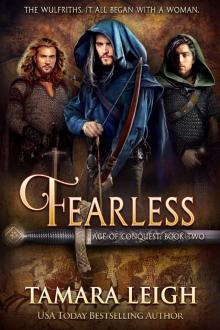 FEARLESS: Book Two: Age of Conquest
FEARLESS: Book Two: Age of Conquest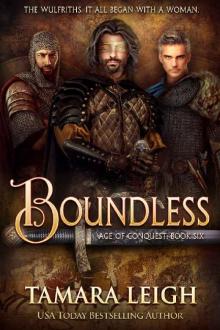 BOUNDLESS: A Medieval Romance (AGE OF CONQUEST Book 6)
BOUNDLESS: A Medieval Romance (AGE OF CONQUEST Book 6)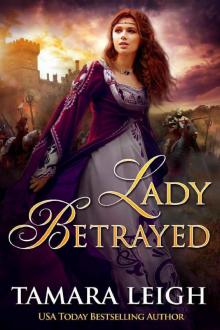 Lady Betrayed
Lady Betrayed Merciless
Merciless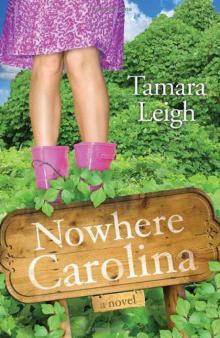 Nowhere, Carolina
Nowhere, Carolina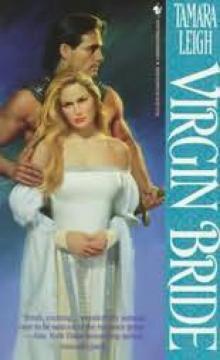 Virgin Bride
Virgin Bride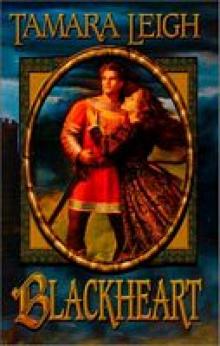 Blackheart
Blackheart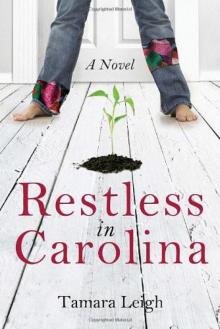 Restless in Carolina
Restless in Carolina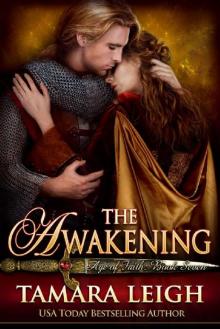 THE AWAKENING_A Medieval Romance
THE AWAKENING_A Medieval Romance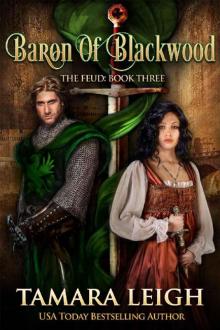 Baron of Blackwood
Baron of Blackwood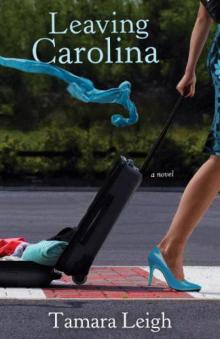 Leaving Carolina
Leaving Carolina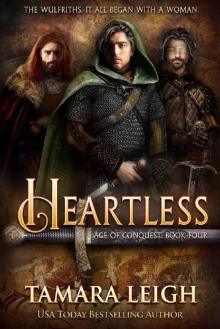 HEARTLESS: A Medieval Romance (Age of Conquest Book 4)
HEARTLESS: A Medieval Romance (Age of Conquest Book 4)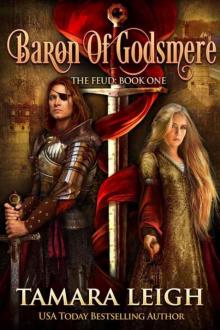 Baron of Godsmere
Baron of Godsmere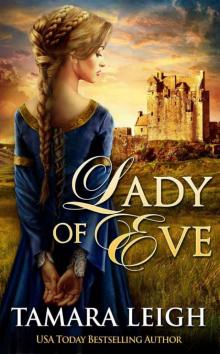 Lady Of Eve
Lady Of Eve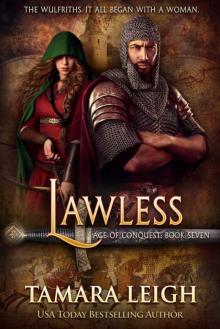 LAWLESS: A Medieval Romance (AGE OF CONQUEST Book 7)
LAWLESS: A Medieval Romance (AGE OF CONQUEST Book 7)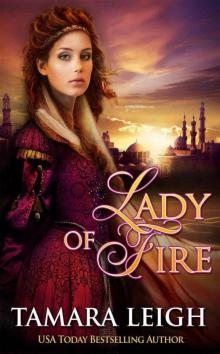 Lady Of Fire AKA Pagan Bride
Lady Of Fire AKA Pagan Bride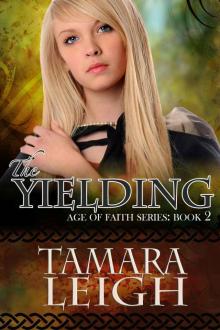 The Yielding (Age of Faith)
The Yielding (Age of Faith)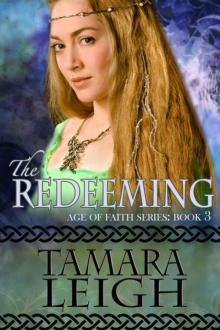 The Redeeming: Book Three (Age of Faith)
The Redeeming: Book Three (Age of Faith)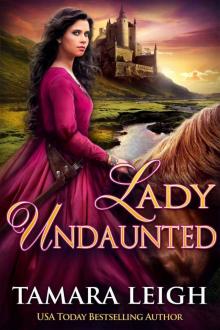 LADY UNDAUNTED: A Medieval Romance
LADY UNDAUNTED: A Medieval Romance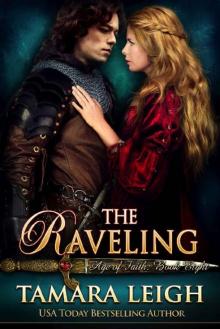 THE RAVELING: A Medieval Romance (Age of Faith Book 8)
THE RAVELING: A Medieval Romance (Age of Faith Book 8)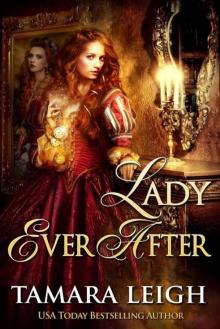 LADY EVER AFTER: A Medieval Time Travel Romance (Beyond Time Book 2)
LADY EVER AFTER: A Medieval Time Travel Romance (Beyond Time Book 2)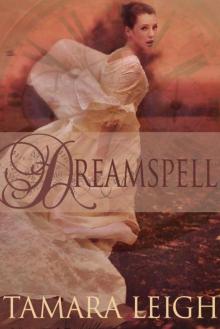 Dreamspell
Dreamspell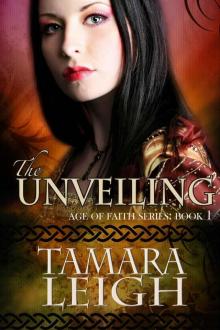 The Unveiling (Age of Faith)
The Unveiling (Age of Faith)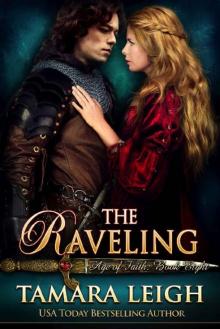 THE RAVELING
THE RAVELING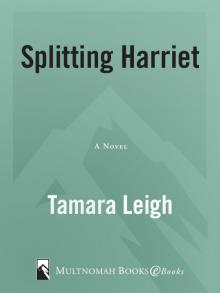 Splitting Harriet
Splitting Harriet Age of Faith 4 - The Kindling
Age of Faith 4 - The Kindling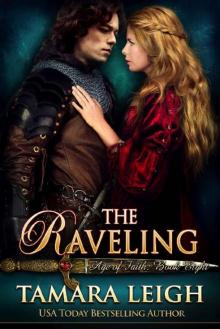 THE RAVELING_A Medieval Romance
THE RAVELING_A Medieval Romance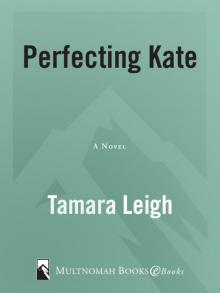 Perfecting Kate
Perfecting Kate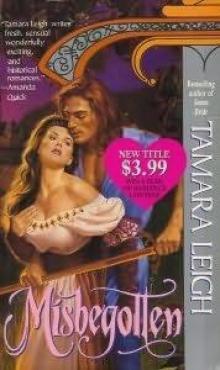 Misbegotten
Misbegotten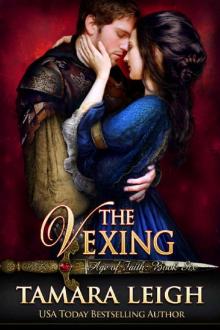 THE VEXING: A Medieval Romance (AGE OF FAITH Book 6)
THE VEXING: A Medieval Romance (AGE OF FAITH Book 6)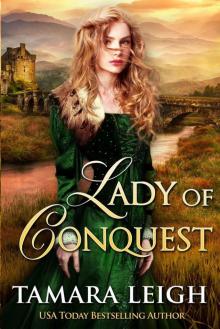 LadyOfConquest:SaxonBride
LadyOfConquest:SaxonBride